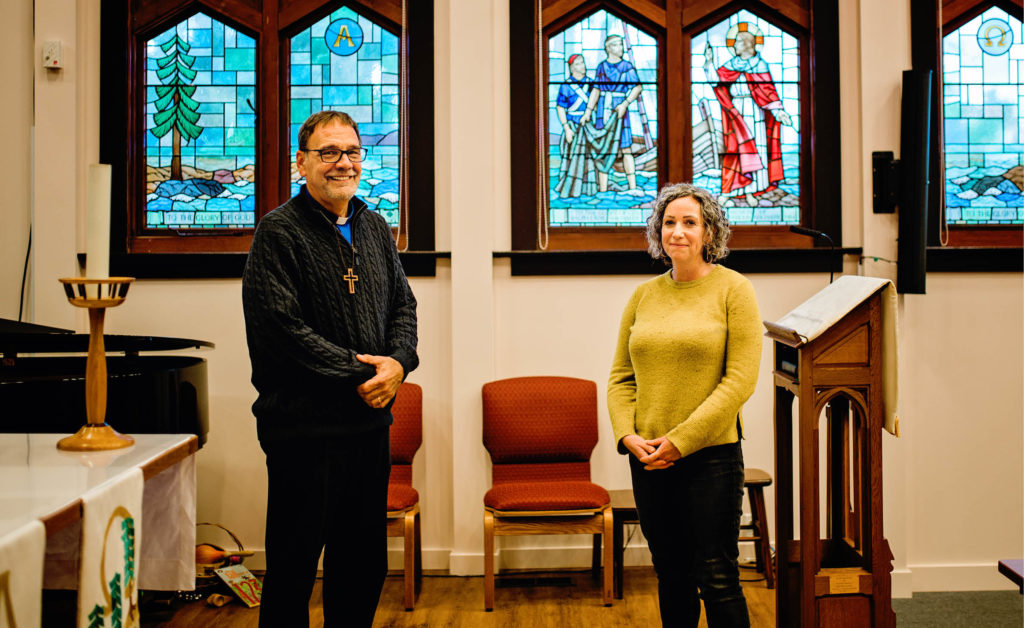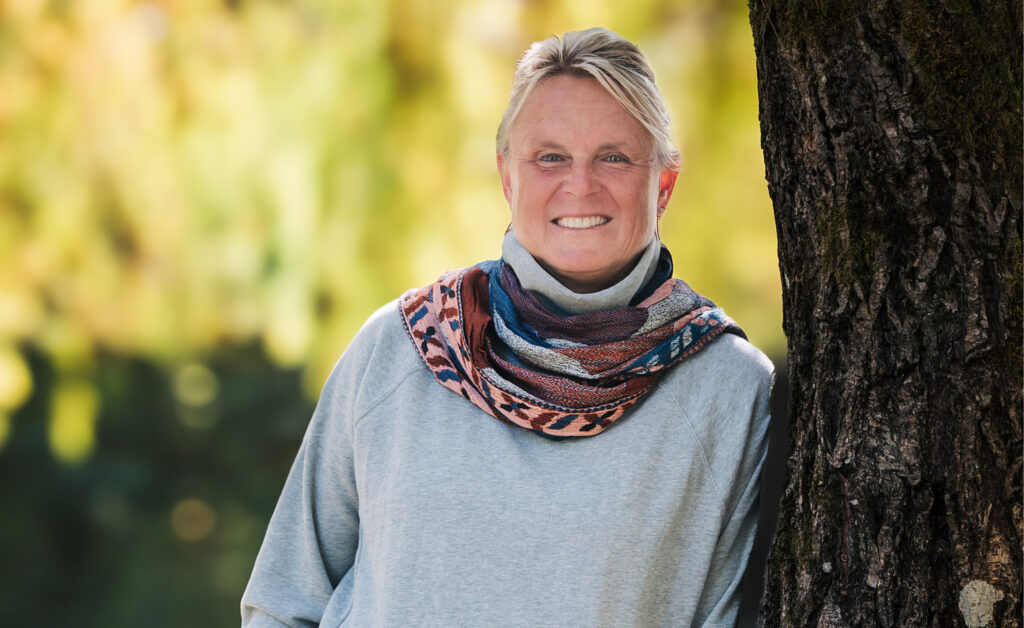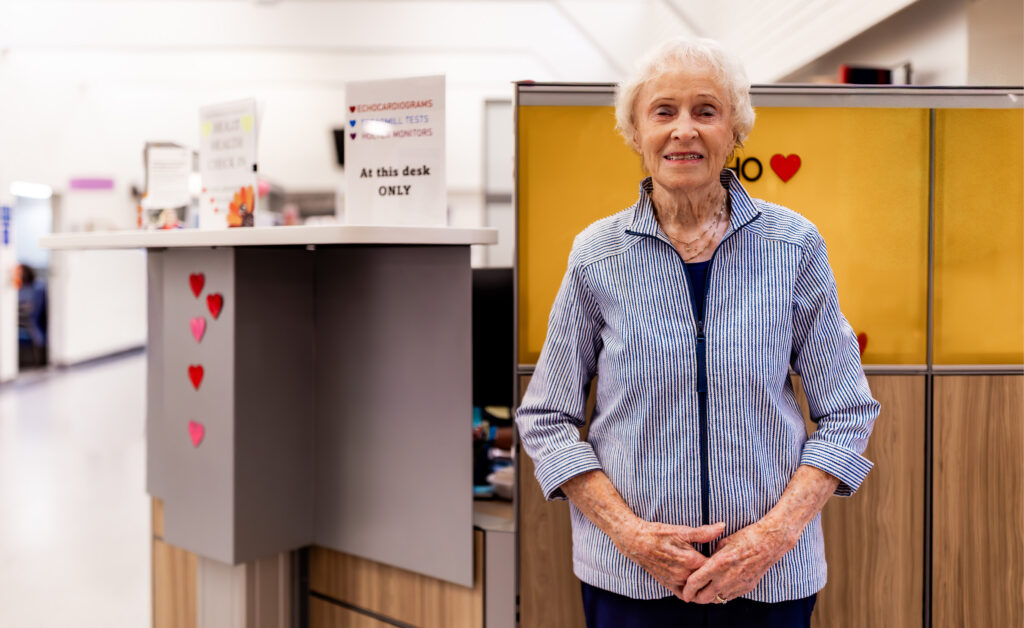by Deborah Rogers | photo by Janis Jean Photography –
The Reverend Canon Dr. Eric Partridge is the Rector at St Andrew’s Anglican Church where he serves a growing congregation and our wider Peninsula community. It’s a church that practices the tolerance and inclusivity they preach. I met with Dr. Partridge for a discussion that was both reflective and inspirational at the church in Sidney.
You made the decision to join the church later in your life, having already had a career that included being a lawyer. How did you know it was the right time for you to join the church? Do you see benefits that come from having lived in different roles prior to becoming a priest?
When I was a teen I thought I would become a priest, but life intervened. I changed careers four times, and each time I changed directions I heard a small voice asking me if it was time to seriously consider the priesthood. I always seemed to find a reason not to do so, but when I finally retired I ran out of excuses. As we say in the church, it can be a long and difficult road to Nineveh but now I’m home. Many priests come from other walks of life. I think that’s a good thing; we each bring with us a wealth of life experience and disparate skills learned in the crucible of life. That enriches the church and makes our communities more willing to see the world from a broader perspective – something that I believe is desperately important as the church meets the needs of the 21st century.
We live in a wonderful community but there are people who, for whatever reason, have fallen through the gaps and find themselves struggling. Is it the role of the church to support those people, and how does St Andrew’s provide outreach in our community?
For the most part, I think Sidney is a very rich community; we have so much to be thankful for. But there are some in our community who struggle economically and others who simply feel isolated. Most churches want to support those people but that’s been more challenging during Covid. We’ve found some ways to manage that: parishioners go out twice a week to offer a meal and to simply connect on a personal level; we provide food cards to allow people to buy what they choose. And we’ve used the telephone, mail, email and Zoom to connect with people who are feeling isolated. Recently we’ve begun to allow in-person gatherings of small groups and worship by pre-registered, vaccinated, masked people. It isn’t perfect, but then, life is messy and that’s OK. We do what we can.
You studied for your doctorate at Lutheran Theological Seminary in Saskatoon and the research you undertook has provoked interest across North America. Can you tell us about the way you selected your topic of loneliness, and the discoveries you made?
My doctoral studies were sparked by a conversation with a parishioner. She was involved in three ministries in the church, drove others to appointments, attended church events and had a group of dear friends she saw regularly. But she told me: “I love my life during the day, but when I go home at night, I’m achingly lonely.” In that one conversation, everything I thought I knew about loneliness was challenged. Here was a woman who was doing all the things I thought a lonely person needed to do to reduce loneliness and it wasn’t enough.
Chronic loneliness has a greater impact than smoking 15 cigarettes a day and surprisingly, it affects as much as 30% of the population, increases the risk of heart disease, and can lead to depression and suicide. My research focused on how daily practices of gratitude might (and it turns out, does) help reduce that impact.
Whether someone thinks of themselves as religious or not, the commandment to “Love your neighbour as yourself” is a message that should be easy to understand. Why do you think people find it hard to accept the differences in others, and how is your church and congregation demonstrating the value to be found in diversity, and tolerance?
I think loving your neighbour, whoever that person might be, is the most important rule of life. As Rabbi Hillel famously said: “All the rest is just commentary.” And yet we humans are tribal – feeling safest with those closest to us, those most like us. It’s challenging to truly love someone whose life, beliefs and choices are different
than ours. But difficult or not, it’s what we’re called to do. St. Andrew’s has a long history of welcoming everyone, loving our neighbour whoever they are. That’s true in small ways, like different preferences in music or liturgy, and in more significant ways, like offering same sex marriages, (or as we call them: marriages). The church has a wonderful kaleidoscope of folk and we delight in that. Questions are encouraged and people are reminded that if someone tells you that they have all the answers, you should run away fast. We’re all learning as we go.
During the pandemic we lost our traditional ways to gather and celebrate or to mourn together. What are we losing as individuals when we can’t hold a funeral or celebration of life? Are there ways that you’ve been able to support our community during these crucial transitions?
We need to be able to mark life passages – funerals, weddings, birth of children – and for too many this has been missing since Covid. This past November 1 we read the names of the 36 folk in our community who have passed during the pandemic. For Christmas, we’ll be offering a “memorial tree” outside our church for anyone in Sidney to hang an ornament in memory of someone. And recently, as things begin to open up, we’ve begun to be able to offer actual memorial services. It’s been far too long, but it’s coming.




